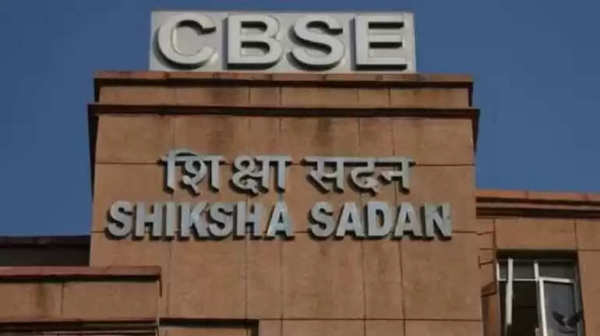
The Central Board of Secondary Education (CBSE) has officially announced the schedule for the Class 10 and 12 practical examinations for the 2026 board session. Alongside the dates, the board has also released a detailed assessment structure and essential guidelines for all subjects. These instructions aim to help schools and students understand the revised pattern clearly and prepare systematically for the upcoming exams.
Practical Exams to Be Held from January 1 to February 14
As per the latest circular published on CBSE’s official website cbse.gov.in, the practical exams, project assessments and internal evaluations for both Class 10 and Class 12 will be conducted between January 1 and February 14, 2026. The board has directed all affiliated schools to strictly follow this timeline to avoid any last-minute inconvenience for students.
CBSE stated that timely scheduling will ensure smooth conduct of assessments across schools and prevent delays that often impact students’ preparation for their theory examinations.
Board Releases Detailed Assessment Framework for Each Subject
CBSE has also issued a comprehensive assessment structure that outlines the marking scheme for theory, practicals, project work and internal evaluation for every subject. The document includes:
-
Class designation
-
Subject code
-
Subject name
-
Maximum marks for theory
-
Maximum marks for practicals
-
Maximum marks for project work
-
Maximum marks for internal assessment
Additionally, the board has clarified which subjects require external examiners, whether practical answer books will be provided by CBSE and the type of answer booklets to be used in theory examinations. Direct links for Class 10 and Class 12 subject-wise structures have also been shared in the circular.
Schools Warned About Repeated Errors in Marks Submission
In recent years, CBSE has observed several errors made by schools while uploading internal and practical marks. Addressing this issue, the board has issued a strict warning that mistakes caused due to negligence will not be corrected later. Schools have been advised to verify details thoroughly before submitting marks on the portal.
This step aims to ensure accuracy and transparency in result preparation, while also preventing administrative delays during the final evaluation process.
Total Marks Set at 100 for Every Subject
As per the updated structure, each subject carries a total of 100 marks, divided into theory, practical, project or internal assessment components, depending on the subject nature. CBSE has advised schools to carefully review the annexures attached with the circular before starting the evaluation process.
This uniform distribution helps standardize assessment across all CBSE-affiliated schools and ensures clarity for teachers and students.
Instructions to Avoid Logistical Issues During Exams
The board has provided additional clarity regarding the type of answer booklets and the number of pages to be used during theory examinations. According to CBSE, this information will help schools plan in advance and avoid logistical challenges during the exam period.
The board emphasized that well-prepared infrastructure and timely planning can significantly improve the conduct of both practical and theory exams.
Guidelines for Schools
CBSE has urged schools to:
-
Follow the official schedule strictly
-
Conduct practicals, projects and internal assessments within the prescribed dates
-
Ensure accurate and timely submission of marks
-
Review all subject-wise instructions mentioned in the official circular
-
Prepare examination materials and logistics in advance
Schools can access the complete assessment framework and guidelines directly from the CBSE website.
-
7 Winter Fruits You Should Eat For Stronger Lungs And Better Breathing This Season

-
Aishwarya Rai Remembers Late Father; Shares Precious Photos Of Aaradhya With Him

-
MSSA: Cambridge Kandivali Beats St. Mary’s Mazgaon In Harris Shield Match

-
Stainless Academy To Reach 5 Lakh MSMEs Nationwide Under Skill Empowerment Drive

-
The Family Man Season 3 Review: Manoj Bajpayee's One Liners Deliver Well, Jaideep Ahlawat's Villain Thrills, But Crowded Cast Dilutes The Punch
